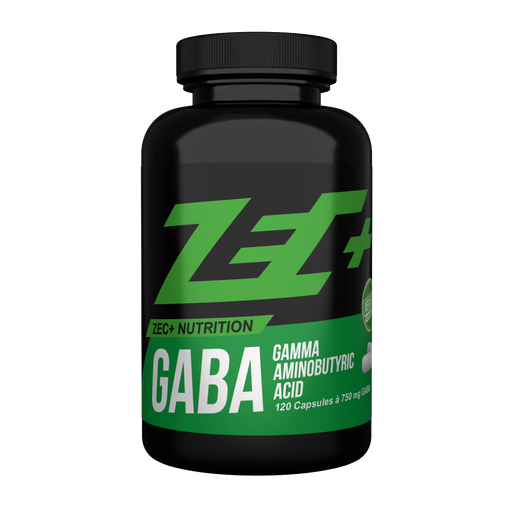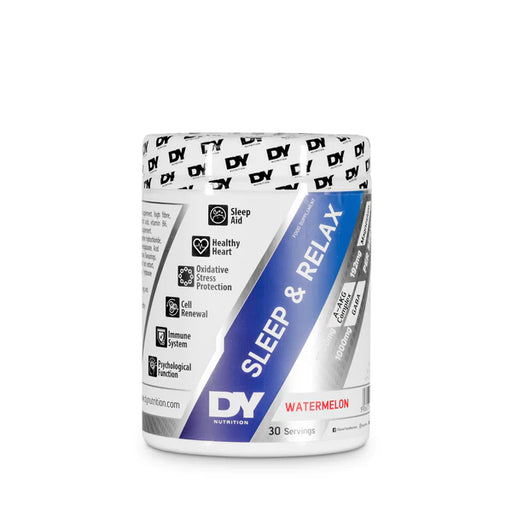GABA
Filters
-
 Save 11%
Save %
Original price €32,90Original price €32,90 - Original price €32,90Original price €32,90Current price €29,28€29,28 - €29,28Current price €29,28| /
Save 11%
Save %
Original price €32,90Original price €32,90 - Original price €32,90Original price €32,90Current price €29,28€29,28 - €29,28Current price €29,28| /Sleeper · 300g
GN Laboratories51 reviewsSleep is probably one of the most important aspects when it comes to health or optimal regeneration after training. In addition to nutrition and sp...
View full detailsOriginal price €32,90Original price €32,90 - Original price €32,90Original price €32,90Current price €29,28€29,28 - €29,28Current price €29,28| /Save 11% Save % -
 Save 0%
Save %
Original price €19,90 - Original price €19,90Original price €19,90€19,90€19,90 - €19,90Current price €19,90| /
Save 0%
Save %
Original price €19,90 - Original price €19,90Original price €19,90€19,90€19,90 - €19,90Current price €19,90| /Gaba · 120 capsules
Zec+3 reviewsGABA capsules support sports, fitness and bodybuilding! GABA capsules contain gamma-aminobutyric acid (short: GABA or gamma amino butyric acid) and...
View full detailsOriginal price €19,90 - Original price €19,90Original price €19,90€19,90€19,90 - €19,90Current price €19,90| /Save 0% Save % -
 Sold out
Original price €29,90Original price €29,90 - Original price €29,90Original price €29,90Current price €26,61€26,61 - €26,61Current price €26,61| /
Sold out
Original price €29,90Original price €29,90 - Original price €29,90Original price €29,90Current price €26,61€26,61 - €26,61Current price €26,61| /Sleep & Relax + GH · 450g
DY NutritionNo reviewsImproved sleep: DY Nutrition Sleep Relax promotes fast falling asleep and deep, restful sleep. Stress reduction: Reduces stress and promotes rel...
View full detailsOriginal price €29,90Original price €29,90 - Original price €29,90Original price €29,90Current price €26,61€26,61 - €26,61Current price €26,61| /Sold out
We live in a world where we are constantly inundated with stimuli. Noise, visual stimuli, computer work and stress are all factors that can easily lead to overstimulation and overload. Burn-out syndrome has almost become a widespread disease and sales of psychotropic drugs and medication to help us "come down" have risen rapidly in recent years. The problems often begin in childhood. Child psychologists and doctors can tell you a thing or two about it. More and more often, the little ones have concentration problems so that they cannot be tamed at home or at school and have to be treated for hyperactivity syndrome.
The good news is that nature has actually provided for such cases and the human body can produce its own sedative - GABA.
EFFECTS
GABA stands for gamma-amino-butyric acid (a - acidi) and is a non-essential amino acid, which means that the body can produce it itself - from another amino acid (glutamine). GABA is the most important inhibitory neurotransmitter in the brain. In functional terms, this means that GABA inhibits the transmission of signals in the nerve endings and therefore performs a very important gatekeeper function. GABA is found in around 30 percent of all nerve cells and seizures occur when its synthesis is inhibited. GABA is therefore the brain's natural "tranquilizer". In old age, GABA levels and GABA activity fall, which may also be the cause of age-related diseases associated with movement disorders and seizures, such as Huntington's disease. It also promotes the release of growth hormone, which is one of the body's most important hormones and is produced and released in the pituitary gland. Among other things, GH is important for muscle building and also has anti-ageing and many disease-preventing properties. The pharmaceutical industry has of course long recognized the calming effects of GABA, and there are a number of drugs that interfere with the GABA cycle and mimic its effects. These include most tranquilizers and sleeping pills, including the best-known group, benzodiazepines. Alcohol also interferes with the GABA binding sites in the brain, which is the reason for its central depressant effects.
INDICATIONS
If there is a deficiency of GABA in the brain, various GABA-associated disorders can occur, as already mentioned. Taking natural GABA can help with the following conditions and symptoms:
Anxiety and inner restlessness: unlike conventional tranquilizers and psychotropic drugs, GABA has NO addictive potential and none of the other side effects of these substances. If GABA is lacking, the "home remedy" provided by nature should also be supplied.
Depression: Depressive moods appear to be associated with low GABA levels. This has also been demonstrated in women suffering from emotional upsets due to premenstrual syndrome. Replenishing GABA stores can significantly improve mood.
Seizures: Certain forms of seizures can be brought under control with GABA, even in children. Good results have also been achieved with the use of GABA after strokes to restore memory functions and speech abilities.
GABA and muscle building: It has been scientifically proven that GABA promotes the release of GH and thus muscle building. With the correct intake and appropriate training, the muscles become more defined due to a lower fat content and the build-up is faster. Initial successes can be seen after around eight weeks. A second important point is that GABA has pain-inhibiting properties. Competitive athletes who take GABA to support their training often report that the pain associated with training is reduced or that the pain tolerance threshold is higher.
Need in sport
What makes this substance interesting for strength athletes is that the intake of GABA can lead to an increased release of growth hormone at a dose of 5g per day. Athletes report that with frequent use, there is only a slight acceleration in fat loss. Another major issue is the significantly improved quality of sleep. GABA seems to work well for many, especially during a short night, so that athletes are fresh and rested the next morning despite 4-5 hours of sleep. The recommended dose is 3-4g of GABA about 15-30 minutes before going to bed. Symptoms such as tiredness the following day hardly seem to occur. GABA should not be taken during the day, otherwise you will simply become too sleepy.
References
- Julien, M. Robert: Drugs and psychotropic drugs; Spektrum Akademischer Verlag; 1934; ISBN 3-8274-0044-9
- Pharmacology and Toxicology, Lüllmann, Mohr, Wehling, Thieme Verlag, 15th edition 20



